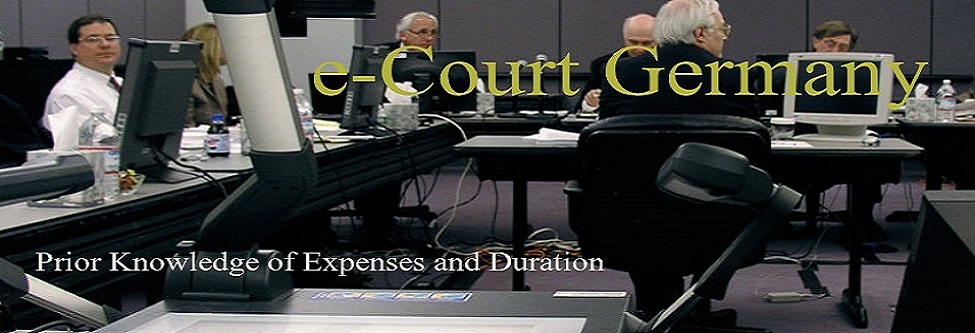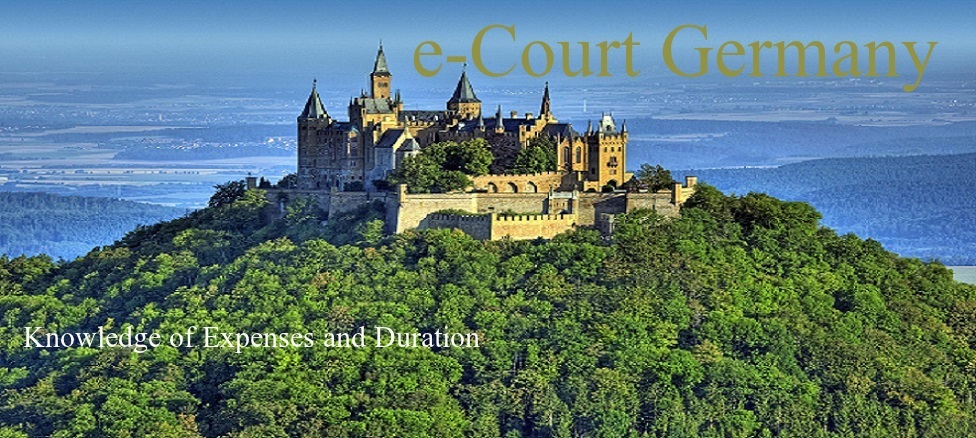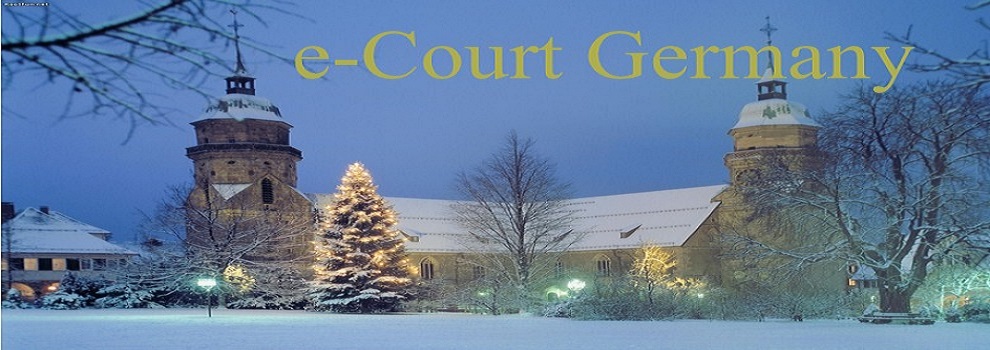Why your participation in e-Court is important?
Technology embraced and legal justice obtained with prior
knowledge of expense and duration

Private Individuals : Why participation in e-Court is important?

Arbitration in EU Member States - Netherlands
Posted by The European e-Justice

Rather than going to court, why not try to solve your dispute through mediation? This is an alternative dispute resolution (ADR) measure, whereby a mediator assists those involved in a dispute to reach an agreement. The government and justice practitioners of the Netherlands are aware of the advantages of mediation.
Who to contact?
The Dutch Mediation Institute (NMI) is an independent institute which aims to raise awareness of mediation in the Netherlands and improve the standard of the services available. The NMI has developed various models and rules for this purpose.
The NMI also manages a national register of mediators which includes only qualified mediators. These mediators will have completed a basic mediation training recognised by the NMI and then passed a theory exam and an assessment. NMI registered mediators are required to keep their knowledge and skills up to date, and this will be verified by the NMI. The register can be consulted at: NMI Register of Mediators.
The site also contains independent information about mediation and mediators in the Netherlands. You can search for information on the site according to your own interests and preferences, using criteria tailored to your needs. For example, you can look for a mediator with specific expertise in a particular area.
The NMI’s address is Westblaak 150, 3012 KM Rotterdam. Its postal address is P.O. Box 21499, 3001 AL Rotterdam. Tel.: 010 - 201 23 44, fax: 010 - 201 23 45, e-mailinfo@nmi-mediation.nl
Mediators can register at the NMI, and must then adhere to the code of conduct for mediators. Registration is voluntary (as is adherence to the code of conduct), but mediators wishing to work within the Dutch system of subsidised legal aid or referral by the courts must register with the NMI and also obtain accreditation and undergo an assessment.
The Netherlands has also introduced an initiative on court-connected mediation, called ‘Mediation naast rechtspraak’. This means that the district court or court of appeal hearing your case will alert you to the possibility of opting for mediation. It may do this in writing, in which case both parties will receive a letter with an information leaflet, the mediation self assessment and a reply form. Alternatively, the judge may indicate at the hearing that your case is suitable for mediation and propose this option to you and the other party.
You can also approach the mediation officer yourself. Each district court and appeal court will have such an officer who can answer your questions, put your proposal for mediation to the other party, help the parties to find the right mediator and arrange the first meeting.
Further information about mediation can be obtained from:
•The Legal Services Desk (Het Juridisch Loket) P.O. Box 487, 3500 AL Utrecht. Tel: 0900-8020 (0.10 per minute).
In which area is recourse to mediation admissible and/or the most common?
Mediation is always allowed and is most frequently used in civil law and public law.
Are there specific rules to follow?Recourse to mediation is entirely voluntary. There is a code of conduct for mediators.
Recourse to mediation is entirely voluntary. There is a code of conduct for mediators.Recourse to mediation is entirely voluntary. There is a code of conduct for mediators.
Information and training
The Dutch Mediation Institute (NMI) provides information on mediation and registers mediators.
The NMI provides independent quality assurance in respect of mediation and mediators nationwide, and maintains a public Register of Mediators.
NMI-registered mediators are trained and qualified to perform as mediators in accordance with the NMI mediation rules. They have committed themselves to the NMI Quality Assurance System.
Mediators wishing to be included in the NMI register must fulfil two basic requirements:
•successful completion of a mediation training at an institute accredited by the NMI;
The NMI has accredited several mediation training institutes. Their training programmes vary from a six-day basic course to courses lasting 20 days or more. Successful completion of one of these training courses is one of the two basic conditions for admission to the NMI Register of Mediators.
The second basic condition for admission is to pass the test of relevant knowledge. The Dutch Government keeps statistics on mediation (with a summary in English).
What is the cost of mediation?
Mediation in the resolution of civil disputes is not provided free of charge.
Costs depend on the type of case. Some procedures are complex and time-consuming and therefore more expensive. There are also cases where the parties are advised to involve specialised lawyers in the mediation. Sometimes referral to a mediator can prompt the parties to resolve their differences by themselves, which is a sign that mediation can work to prevent the escalation of a dispute.
If the parties have sufficient financial means, they have to meet the costs of mediation themselves. The income threshold for eligibility for a state-subsidised lawyer or mediator is:
•For married couples, registered partners or those living together: €35 200 per year.
In addition to these financial limits, legal aid is not available to parties with assets above a certain value requiring disclosure to the tax authorities. These include a second home, other real estate, savings, liquidity, assets, etc. The exact value for married couples, registered partners or people living together is determined on the basis of data from the tax authorities.
If the parties' means fall below the applicable thresholds, the state will contribute to the cost of a lawyer or mediator. However, the state will never pay the full amount. Each party must make a financial contribution. This amounts to €51 for 0 - 4 hours and €102 for 5 or more hours (per mediation, not per party). The contribution for a lawyer is higher. These figures are given by way of an indication and are not legally binding. The exact amounts can be found on the website of the Legal Aid Council.
Is it possible to enforce an agreement resulting from mediation?
Directive 2008/52/EC allows those involved in a dispute to request that a written agreement arising from mediation be made enforceable. Member States will specify which courts and other authorities are competent to receive such requests. Information about the current state of implementation of this Directive can be obtained from the Legal Aid Council.
•The Legal Aid Council (Raad voor Rechtsbijstand) in Utrecht: Jaarbeursplein 15, 3521 AM Utrecht, P.O. Box 24080, 3502 MB Utrecht. Tel: 088-7871012 (Registration Deaprtment).
Mediation is always allowed and is most frequently used in civil law and public law>
•passing an assessment of relevant knowledge.
•For single people: € 24 900 per jaar.
-
TOPICS:
- ABOUT e-COURT
- home
- preliminary information
- introduction ( About us )
- benefits
- scope of legal areas
- directorate
- supervisory board
- advisory council
- originating partners
- e-Court & ADRpartners
- articles of operation
- privacy
- legal information
- in the news
- ( e-Court versus ADR )
- costs
- FREQUENTLY ASKED QUESTIONS
- *** introduction
- *** for bench lawyers
- *** for lawyers & arbitrators
- *** for notaries
- *** for insurance companies
- *** for companies
- *** for private individuals
- *** for bailiffs
- *** security
- OFFLINE NETWORKING
Endorsements ( 1/2000 + ):
- Patricia M. Swerhone
Waters and Associates, Barristers & Solicitors, Toronto - Kenneth J. Byrne
Immigration and Real Estate Lawyer at Benson Buffett, Newfoundland And Labrador - Ahab Abdel-Aziz
Partner at Heenan Blaikie, Toronto - Amy M. Crosbie
Partner at Curtis, Dawe, Newfoundland And Labrador - Justice Clark
Partner at Simmons Da Silva + Sinton LLP, Toronto - Stanley Potter
Owner, Stanley J. Potter, Barrister & Solicitor, Toronto - Bob Ackerman
Owner, Ackerman Law Office Professional Corporation, Toronto - Rosemary Bocska
Research Lawyer at Rosemary Bocska, Research - Darrell Brown
Lawyer at SGM/President at Bezpala Brown Gallery, Toronto - Beth A. Sheppard
Shareholder/Director, Benson Buffett PLC Inc., Newfoundland And Labrador - Tony Lafazanis
Personal injury lawyer at Tony Lafazanis, Toronto, - Steve A.
Lawyer at Defend Your Points - Traffic Ticket Lawyers, Toronto - Joseph W.J. F.
General counsel at Law Office, New Brunswick, Canada - Abigail Wiley
TimberWest Forest Corp., Vancouver - Anna L.
University of Ottawa Law School - Anushika Anthony
Personal Injury Lawyers, Toronto - Sandra D.
Heenan Blaikie, Toronto - Young Lee
Lawyer, Barrister, Solicitor & Notary Public, Toronto - James A. Carr
Barrister and Solicitor at Carr Quinn King, Edmonton - Miller Thomson LLP
Gerald Chipeur, QC, Partner Calgary, Alberta - Adair
Morse LLP
John Adair, Toronto, Canada Area Law Practice - Bart
Law
Jaqueline Bart, Canadian Immigration Law - Clancy P.C. & Brion Raffoul
Paula Clancy, Managing Attorney at Clancy P.C.& Brion Raffoul, Ottawa Legal Services - FreemanLaw -
Barristers
Derek Freeman, Toronto, Ontario, Law Practice - Marc Cormier
Partner Cormier Marc & Assoc Avocats-Notaires, New Brunswick - Jannet Allison
Barrister & Solicitor, London Ontario - Leonard,Bosschart
Partner at Fogler Rubinoff LLP, Toronto - Behdad Hosseini
Partner at Hosseini Law Firm (HLF), Toronto - Brooker Law
Partner at Tom Brooker, Ottawa - Joseph Paradiso
Barrister and Solicitor at Paradiso and Associates, Toronto - Mike Stavrakis
Barrister & Solicitor at Mike Stavrakis Law Office, Toronto - Lawrence Blokker
Lawyer at Robinson Blokker, London - Erica Cappello
Barrister and Solicitor at Capo Sgro LLP, Toronto - ( Endorsements continued.....)















